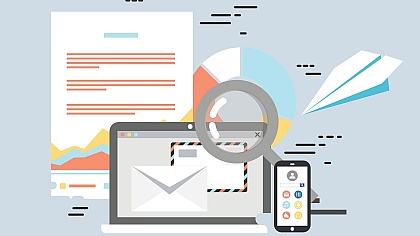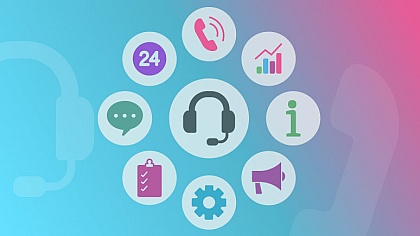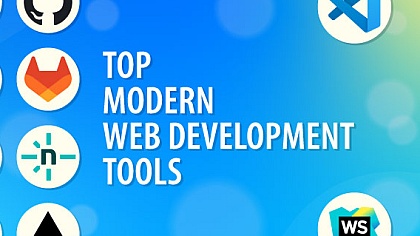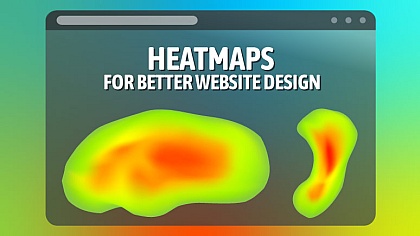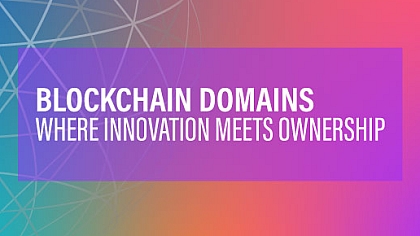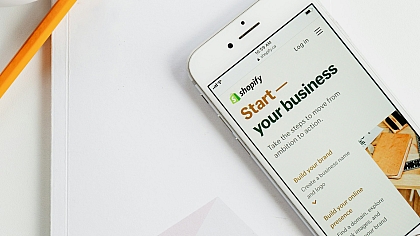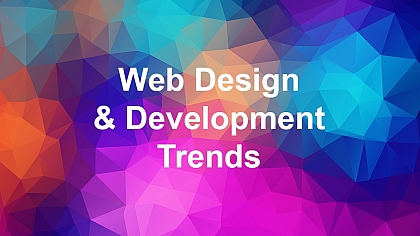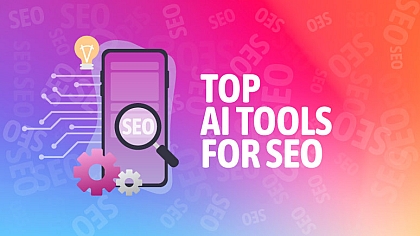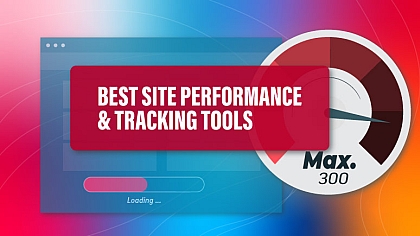
Mastering Mobile Apps: Types, Development, and Benefits
Mobile applications, or apps, have become integral to modern life, catering to a wide range of needs and preferences. From using smart TVs and ordering food to booking taxis, managing fitness routines and even finding love, the diverse array of apps available on the market today has transformed the way we live, work, and play.
We will talk about the various types of mobile apps, their development process, and the benefits they offer to users and businesses alike.
The Most Common Types of Apps:
| Type of App | Description |
|---|---|
| Taxi App | Allows users to book and pay for rides from a fleet of vehicles. |
| Food App | Facilitates ordering and delivery of food from local restaurants. |
| Fitness App | Helps users track workouts, set fitness goals, and monitor progress. |
| Matrimonial App | Connects individuals based on shared interests and preferences. |
| Music App | Provides access to streaming music, playlists, and personalized recommendations. |
| Travel App | Assists users with booking accommodations, flights, and planning itineraries. |
| Games App | Offers a variety of interactive games for entertainment and leisure. |
| Business App | Supports business operations such as communication, project management, and productivity. |
| Educational App | Offers learning materials, courses, and interactive lessons on various subjects. |
| Web App | Accessed via web browsers, offering functionality similar to native apps. |
| Hybrid App | Combines elements of native and web apps, providing cross-platform compatibility. |
This table provides a concise overview of the most common types of apps and their respective functionalities. Here's a breakdown of the benefits and common uses of each type of app:
-
Taxi App:
- Benefits:
- Convenience: Easily book rides with just a few taps on your smartphone.
- Safety: Track the location of your ride and share details with others for added security.
- Uses:
- Commuting: Use taxi apps for daily transportation to work, meetings, or social gatherings.
- Travel: Book rides while travelling in unfamiliar cities or countries.
- Benefits:
- Food App:
- Benefits:
- Convenience: Order food from a variety of restaurants and cuisines with delivery to your doorstep.
- Time-saving: Skip the hassle of cooking or dining out by ordering food online.
- Uses:
- Busy days: Order meals during busy workdays or when you're too tired to cook.
- Social gatherings: Cater to guests at parties or events by ordering from favourite restaurants.
- Benefits:
-
Fitness App:
- Benefits:
- Goal tracking: Set fitness goals and track progress over time, motivating you to stay active.
- Customization: Access personalized workout plans and nutritional guidance based on individual needs.
- Uses:
- Workouts: Follow guided workout routines at home or in the gym.
- Accountability: Connect with friends or join challenges to stay motivated and accountable.
- Benefits:
-
Matrimonial App:
- Benefits:
- Connection: Meet new people and potentially find marriage partners with shared interests.
- Compatibility: Use algorithms to match with individuals based on preferences and compatibility.
- Uses:
- Connecting with potential marriage partners for life-long relationships.
- Benefits:
-
Music App:
- Benefits:
- Access: Stream millions of songs from various artists and genres anytime, anywhere.
- Discovery: Discover new music based on personalized recommendations and curated playlists.
- Uses:
- Entertainment: Listen to music for relaxation, motivation during workouts, or background ambience.
- Exploration: Explore different genres and artists to expand your musical horizons.
- Benefits:
-
Travel App:
- Benefits:
- Planning: Research destinations, and book accommodations, flights, airport transfers and activities all in one place.
- Organization: Keep travel itineraries, reservations, and important documents organized and accessible.
- Uses:
- Vacation planning: Plan and book trips, including flights, hotels, and tours.
- Navigation: Use maps and navigation features to explore new destinations and find local attractions.
- Benefits:
-
Games App:
- Benefits:
- Entertainment: Provides a wide range of games for leisure and enjoyment, catering to various interests and skill levels.
- Stress relief: Engage in gaming as a form of relaxation and stress relief.
- Uses:
- Leisure time: Play games during breaks or downtime to unwind and have fun.
- Social interaction: Connect with friends and family through multiplayer games or gaming communities.
- Benefits:
-
Business App:
- Benefits:
- Productivity: Streamline business operations, communication, and collaboration among team members.
- Efficiency: Access important documents, data, and tools on the go, enabling work from anywhere.
- Uses:
- Project management: Manage tasks, deadlines, and resources for projects.
- Communication: Facilitate real-time communication through messaging, video conferencing, and collaboration tools.
- Benefits:
-
Educational App:
- Benefits:
- Learning: Access educational materials, courses, and resources on various subjects and topics.
- Flexibility: Learn at your own pace and convenience, anytime and anywhere.
- Uses:
- Skill development: Improve knowledge and skills in specific areas of interest or professional development.
- Academic support: Supplement traditional education with additional learning resources and tutorials.
- Benefits:
-
Web App:
- Benefits:
- Cross-platform compatibility: Access apps across different devices and operating systems via web browsers.
- Accessibility: No need for installation, updates, or storage space on the user's device.
- Uses:
- Information access: Access websites and web-based tools for various purposes, such as news, shopping, or productivity.
- Functionality extension: Enhance the capabilities of websites with interactive features and dynamic content.
- Benefits:
-
Hybrid App:
- Benefits:
- Cross-platform compatibility: Develop apps that work seamlessly across multiple platforms (iOS, Android, etc.).
- Cost-effectiveness: Reduce development time and costs by leveraging web technologies and frameworks.
- Uses:
- Business applications: Create enterprise apps for internal use, employee communication, and workflow management.
- Consumer apps: Develop customer-facing apps for e-commerce, social networking, or content delivery with broad accessibility.
- Benefits:
Types of Mobile Apps

A. Native Apps: Native apps are developed for a specific platform, such as iOS or Android, using platform-specific programming languages and tools (Swift or Objective-C for iOS, Java or Kotlin for Android). These apps are optimized for performance and take advantage of device-specific features, providing a seamless user experience. Examples include taxi apps like Uber, food delivery apps like DoorDash, and fitness apps like Fitbit.
B. Web Apps: Web apps are accessed through a web browser and do not require installation on the user's device. They are developed using web technologies such as HTML, CSS, and JavaScript and are responsive to different screen sizes. Web apps offer broad compatibility across devices and platforms but may have limitations in functionality compared to native apps. Examples include online dating platforms like Tinder and music streaming services like Spotify.
C. Hybrid Apps: Hybrid apps combine elements of both native and web apps, allowing developers to write code once and deploy it across multiple platforms. They are developed using web technologies but are packaged as native apps using frameworks like Ionic or React Native. Hybrid apps balance performance and cross-platform compatibility, making them a cost-effective solution for businesses. Examples include travel apps like Airbnb and educational apps like Duolingo.
Development Process of Mobile Apps
A. Conceptualization and Planning: The development process begins with conceptualization, where the idea for the app is conceived based on market research, user needs, and business objectives. This stage involves defining the app's purpose, features, target audience, and monetization strategy. Planning includes creating wireframes, user flows, and a project roadmap to outline the app's structure and functionality.
B. Design: Design plays a crucial role in the success of a mobile app, influencing user engagement and satisfaction. User interface (UI) design focuses on creating visually appealing layouts and intuitive navigation, while user experience (UX) design ensures a seamless and enjoyable interaction with the app. Designers use tools like Adobe XD or Sketch to create mockups and prototypes that are refined based on user feedback and usability testing.
C. Development: The development phase involves writing code to implement the app's features and functionality. For native apps, developers use platform-specific languages and tools, while hybrid apps are built using web technologies and frameworks. Development teams collaborate to integrate backend services, APIs, databases, and third-party libraries as needed. Continuous testing and debugging ensure the app meets quality standards and performs reliably across devices.
D. Testing: Testing is a critical part of the development process to identify and fix bugs, optimize performance, and ensure compatibility across devices and operating systems. Testing may include functional testing to validate individual features, usability testing to assess the user experience, and performance testing to evaluate responsiveness and load times. Automated testing tools like Appium or XCTest can streamline the testing process and improve efficiency.
E. Deployment: Once the app is thoroughly tested and deemed ready for release, it is deployed to the respective app stores (Apple App Store, Google Play Store, etc.) for distribution to users. App store guidelines and submission requirements must be followed to ensure compliance and approval. After deployment, developers monitor user feedback, analyze app performance metrics, and release updates as necessary to address issues and enhance functionality.
Benefits of Mobile Apps
A. Convenience and Accessibility: Mobile apps offer unparalleled convenience, allowing users to access services and information anytime, anywhere, directly from their smartphones or tablets. Whether it's ordering food on the go, hailing a ride with a few taps, or studying a new language during a commute, mobile apps simplify tasks and streamline everyday activities.
B. Enhanced User Experience: Well-designed mobile apps prioritize user experience, providing intuitive interfaces, smooth navigation, and personalized content tailored to individual preferences. Features like push notifications, in-app messaging, and seamless payments enhance engagement and make interactions with the app more enjoyable and efficient.
C. Personalization: Mobile apps leverage data analytics and user insights to deliver personalized experiences, recommending relevant content, products, and services based on user behaviour and preferences. Personalization fosters customer loyalty and satisfaction, increasing retention and driving repeat usage of the app.
D. Increased Engagement and Loyalty: Mobile apps enable direct communication with users through push notifications, alerts, and updates, fostering ongoing engagement and relationship-building. Features like gamification, rewards programs, and social sharing encourage users to interact with the app regularly and deepen their connection with the brand.
E. Revenue Generation: Mobile apps offer various monetization opportunities for businesses, including in-app purchases, subscription models, advertising, and affiliate marketing. By providing value-added services and content, apps can generate revenue streams and contribute to the overall profitability and growth of the business.
Mobile apps have revolutionized the way we engage with technology, offering unparalleled convenience, personalized experiences, and endless possibilities at our fingertips. From ordering food to staying fit, and finding love to exploring new destinations, the diverse array of apps available cater to a multitude of needs and preferences, enriching our lives in countless ways.
Understanding the different types of mobile apps and the development process behind them provides valuable insights into the complexities and considerations involved in bringing an app to life. Whether it's native, web, or hybrid, each type of app has its strengths and limitations, catering to different use cases and audiences.
The benefits of mobile apps extend beyond mere convenience, encompassing enhanced user experiences, increased engagement and loyalty, and revenue generation opportunities for businesses. As technology continues to evolve and consumer expectations evolve with it, mobile apps will remain a cornerstone of digital innovation, driving progress and shaping the future of interconnected experiences.
Mobile apps have become indispensable tools in our daily lives, empowering us to accomplish tasks more efficiently, connect with others more seamlessly, and enrich our experiences in ways previously unimaginable. As we embrace the transformative power of mobile technology, let us continue to harness its potential to create meaningful and impactful solutions that enhance the human experience.
Essential App Categories: Uses and Benefits Across Various Industries
Car Rental App and Car Service App: Car rental apps provide convenient access to short-term vehicle rentals for travel or daily use, while car service apps streamline vehicle maintenance scheduling and repairs.
Car Wash App and Car Maintenance App: Car wash apps offer easy booking of professional cleaning services, and car maintenance apps help track and schedule regular upkeep for vehicle performance and longevity.
Car Trading App and Car Insurance App: Car trading apps simplify buying and selling cars with a range of options, while car insurance apps allow users to manage policies, file claims, and compare rates.
Airport Transfer App and Luxury Limousine Rental App: Airport transfer apps ensure hassle-free transportation to and from airports, while luxury limousine rental apps cater to premium transport needs for special events or business travel.
Tour & Travel Booking App and Holiday Booking App: Tour and travel booking apps allow users to explore and reserve curated travel experiences, while holiday booking apps focus on comprehensive vacation packages, from accommodation to activities.
Logistic App and Fleet Service App: Logistic apps streamline the management and tracking of goods transportation, while fleet service apps optimize the maintenance and operation of multiple vehicles for businesses.
Gym & Fitness App and Fitness Tracking App: Gym and fitness apps offer workout plans and class bookings, while fitness tracking apps monitor personal health data like steps, calories, and workout progress.
Restaurant App and Food Delivery App: Restaurant apps provide easy table reservations and menu browsing, while food delivery apps bring a variety of meal options directly to your doorstep.
Doctor Appointment Booking App and Skin Care App: Doctor appointment booking apps make scheduling health checkups seamless, while skincare apps offer personalized skincare routines, tips, and consultations.
Online Shopping App and Matrimonial & Social Media App: Online shopping apps enable users to purchase goods from a variety of retailers, while matrimonial and social media apps connect people for marriage, networking, and social interaction.
Mobile Gaming App and Online Gaming App: Mobile gaming apps offer convenient on-the-go entertainment with diverse options for all audiences, while online gaming apps connect players globally, fostering social interaction and competition. Experts like Matej Lancaric, a Mobile UA Consultant, specialize in optimizing user acquisition strategies to help these apps effectively reach their target audiences.
This concludes our exploration of mobile apps, their development process, and the myriad benefits they offer. Whether you're a user seeking convenience and utility or a business looking to innovate and engage with your audience, mobile apps hold tremendous potential to shape the future of digital interaction and connectivity.


